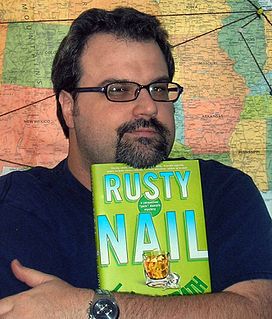A Quote by Alan Moore
There's been a growing dissatisfaction and distrust with the conventional publishing industry, in that you tend to have a lot of formerly reputable imprints now owned by big conglomerates.
Related Quotes
The industry has changed in big ways. When I started making movies, the studios were not all owned by huge conglomerates, so the decisions were made in a very different way. Over the years, I've watched both the rise and the decimation and fall of the DVD as a portion of where you could generate revenue from making this kind of content. We've seen this change in the balance sheet on the international side of the ledger; it's now a much bigger percentage than it is on domestic, even though movies would have been previously really domestically driven.
With the communication internet, whole industries have been disrupted. You're in the publishing industry, you understand that. Before, we had newspapers, magazines - now you're on the web. I'm in book publishing. I don't have to tell you what's happened to us. Television has taken a hit. The music industry. But, thousands of new businesses have emerged on this new communication revolution platform. Not just Google, Facebook, and Twitter. There are thousands of operations. Businesses that are doing the platforms, the apps. They're mining the big data. They're creating the connections.
The Internet obviously changes things; we've seen that in the music industry above all else. As an author, I'm now having to deal with the fact that it's happening in the publishing industry as well. And publishing is going through a very difficult time. Some view it as positive, some negative, but nobody really knows how to deal with it. If you're an author it looks very challenging because your work can be pirated so easily and there's very little you can do about it.
Worker-owned co-ops, on their own, floating in the market, tend to replicate the behavior of worker-owned capitalists in some circumstances. They sometimes develop positive participatory schemes, sometimes not. We know from the studies of worker-owned plywood companies in the US, they can tend to develop conservative attitudes, not socialist attitudes. So even though I'm an advocate of further democratization of the workplace, we also need to be building larger structures.






































